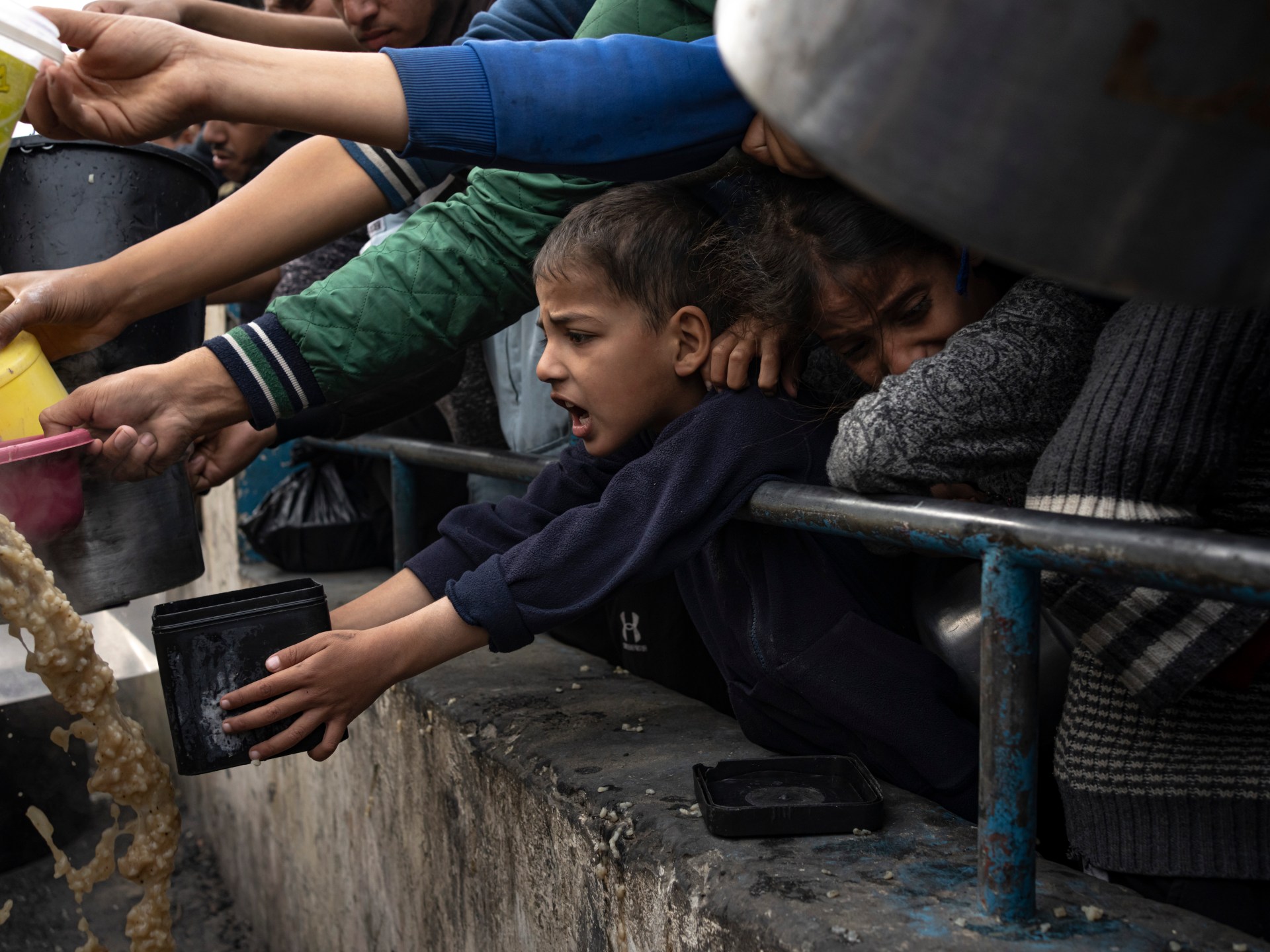Life Under Blockade: The Plight Of Gaza's Citizens Facing Hunger, Disease, And Crime

Table of Contents
Widespread Hunger and Food Insecurity
The blockade severely restricts the import of essential food items into Gaza, creating widespread hunger and food insecurity. This lack of access to basic sustenance has devastating consequences for the entire population.
Limited Access to Food and Resources
Restrictions on imports mean that many staple foods are either unavailable or prohibitively expensive. The limited agricultural capacity within Gaza further exacerbates the problem.
- Severe shortages: Basic items like flour, sugar, and cooking oil are frequently in short supply, forcing families to make difficult choices about what to eat.
- Exorbitant prices: The limited availability drives up prices, making nutritious food unaffordable for many families already struggling to survive.
- Over-reliance on aid: Many Gazans depend on humanitarian aid organizations for food, highlighting the severity of the food crisis and the failure of the local economy to provide for its people.
The consequences of food insecurity are particularly devastating for children. Malnutrition rates are alarmingly high, with estimates suggesting that over 40% of children under five suffer from some form of malnutrition. This leads to stunted growth, weakened immune systems, and impaired cognitive development, crippling an entire generation.
Impact on Health and Development
Chronic malnutrition has long-term consequences that extend far beyond childhood. Malnourished children are more susceptible to infections, have impaired learning abilities, and face reduced life expectancy.
- Increased anemia: Anemia, a common consequence of malnutrition, affects energy levels, cognitive function, and overall health.
- Stunted growth: Malnutrition during crucial developmental periods leads to irreversible stunting, impacting physical growth and long-term health.
- Weakened immune systems: Malnourished children are significantly more vulnerable to illnesses and infections, further straining an already overwhelmed healthcare system.
Pregnant women and nursing mothers are particularly vulnerable, as their nutritional needs are significantly higher. The lack of access to nutritious food during pregnancy and lactation can lead to serious health complications for both mothers and babies.
Rampant Disease and Limited Healthcare Access
The blockade has severely crippled Gaza's healthcare system, leading to a surge in preventable diseases and a deterioration in public health. The restricted access to essential medicines and medical equipment is a critical factor.
Shortage of Medical Supplies and Equipment
The blockade severely limits the importation of essential medicines and medical equipment, creating critical shortages across the healthcare system.
- Cancer drugs: Patients suffering from cancer often lack access to crucial medications, resulting in delayed or inadequate treatment.
- Dialysis supplies: Individuals requiring dialysis face significant challenges due to shortages of essential supplies and equipment.
- Lack of specialized care: Many specialized medical procedures and treatments are unavailable in Gaza due to the blockade, forcing patients to seek care elsewhere – often with insurmountable financial and logistical barriers.
Deteriorating Public Health Infrastructure
The blockade has also negatively impacted Gaza's public health infrastructure, increasing vulnerability to outbreaks of preventable diseases.
- Water shortages: Water scarcity and inadequate sanitation contribute to the spread of waterborne diseases.
- Inadequate sewage systems: Overburdened and poorly maintained sewage systems lead to environmental contamination and increased risk of infection.
- High rates of infectious diseases: The combination of malnutrition, limited access to healthcare, and poor sanitation contributes to high rates of preventable diseases such as cholera and typhoid.
The consequences are dire: outbreaks of preventable diseases become more frequent and severe, further straining the already fragile healthcare system.
Rise in Crime and Security Concerns
The prolonged blockade has created a climate of desperation, contributing to a significant rise in crime and security concerns within Gaza.
Socioeconomic Factors Driving Crime
High unemployment and widespread poverty, direct consequences of the blockade, are driving forces behind increased crime rates.
- Lack of economic opportunities: Limited job opportunities and a crippled economy force many Gazans into desperation, leading them to engage in criminal activities for survival.
- Desperation leading to crime: The struggle for basic necessities drives people to theft, fraud, and other crimes.
- Rise in gang violence: Unemployment and lack of opportunities, particularly among youth, contribute to the rise of gangs and associated violence.
Weakened Law Enforcement and Security
The blockade also undermines law enforcement capacity, making it more difficult to maintain order and security within Gaza.
- Lack of resources: The blockade restricts access to essential equipment and training for law enforcement agencies.
- Limited capacity: Understaffed and under-resourced law enforcement agencies struggle to maintain order and respond effectively to crime.
- Impact on the rule of law: The weakening of law enforcement further erodes the rule of law, creating a climate of insecurity for citizens.
Conclusion
The blockade of Gaza has created a catastrophic humanitarian crisis, with devastating consequences for its citizens. Widespread hunger, rampant disease, and a surge in crime are tearing apart the fabric of Gazan society. The long-term impacts on health, development, and security are profound and far-reaching. This dire situation demands immediate and decisive action from the international community.
The plight of Gaza's citizens demands immediate action. We must work together to end the blockade and alleviate the suffering caused by this humanitarian crisis. Learn how you can help end Life Under Blockade in Gaza today by donating to reputable aid organizations like UNRWA or by contacting your elected officials to advocate for an end to the blockade. Let's work together to bring hope and relief to the people of Gaza.

Featured Posts
-
 Childrens Hospital Activist Proposes Uterine Transplants For Transgender Women
May 10, 2025
Childrens Hospital Activist Proposes Uterine Transplants For Transgender Women
May 10, 2025 -
 Dakota Johnson Melanie Griffith And Siblings Attend Materialist Premiere
May 10, 2025
Dakota Johnson Melanie Griffith And Siblings Attend Materialist Premiere
May 10, 2025 -
 Remembering Americas First Nonbinary Person A Life Cut Short
May 10, 2025
Remembering Americas First Nonbinary Person A Life Cut Short
May 10, 2025 -
 Spring Fashion Inspiration Dakota Johnson And Melanie Griffith
May 10, 2025
Spring Fashion Inspiration Dakota Johnson And Melanie Griffith
May 10, 2025 -
 Elon Musks Net Worth Fluctuation During Trumps First 100 Days
May 10, 2025
Elon Musks Net Worth Fluctuation During Trumps First 100 Days
May 10, 2025
